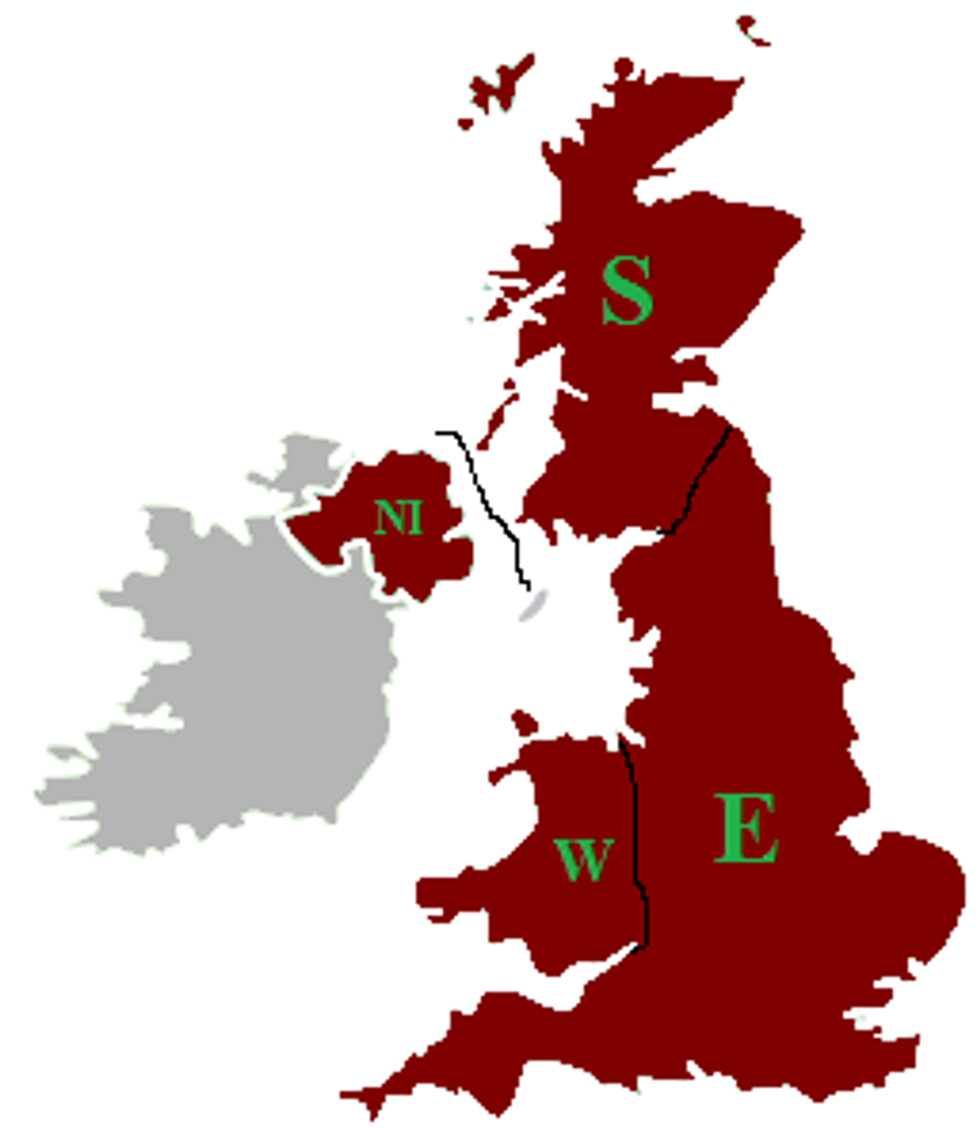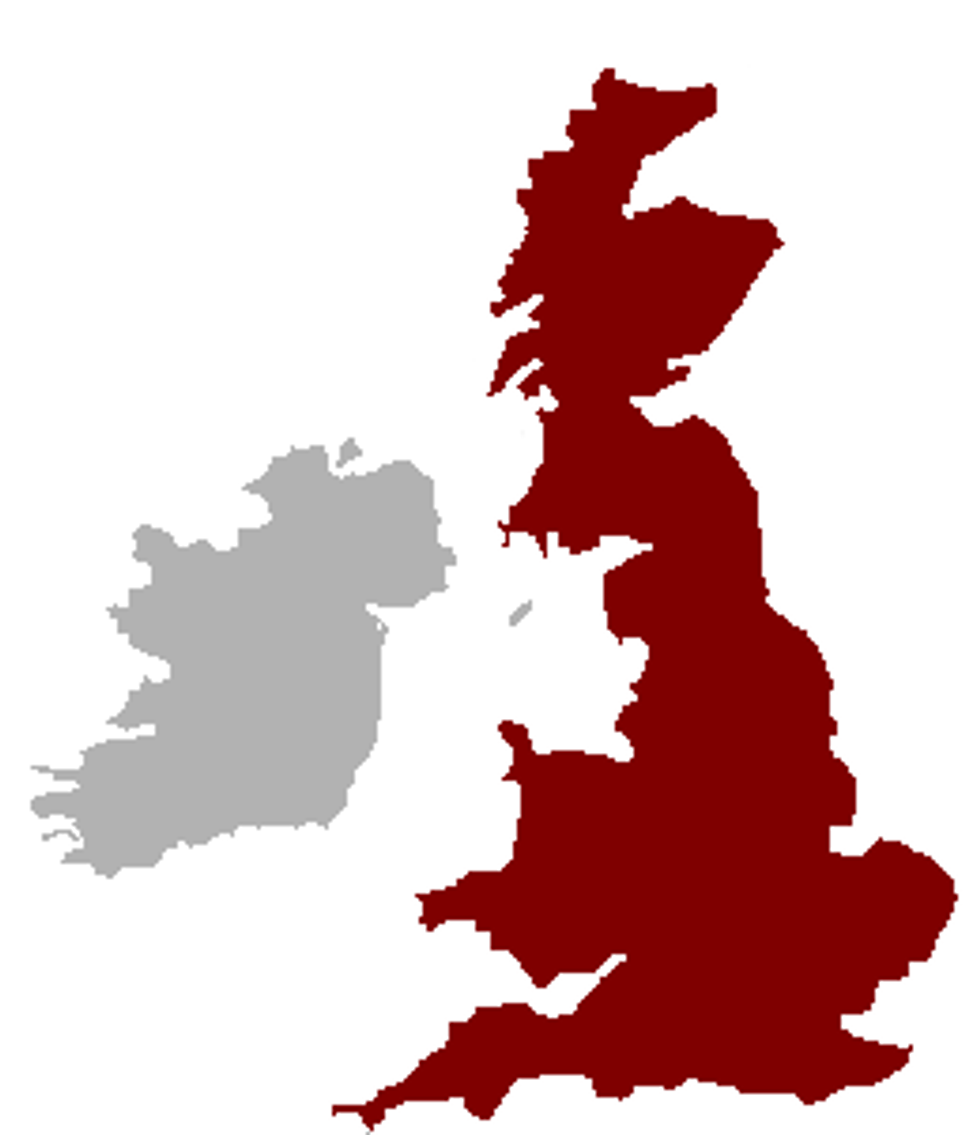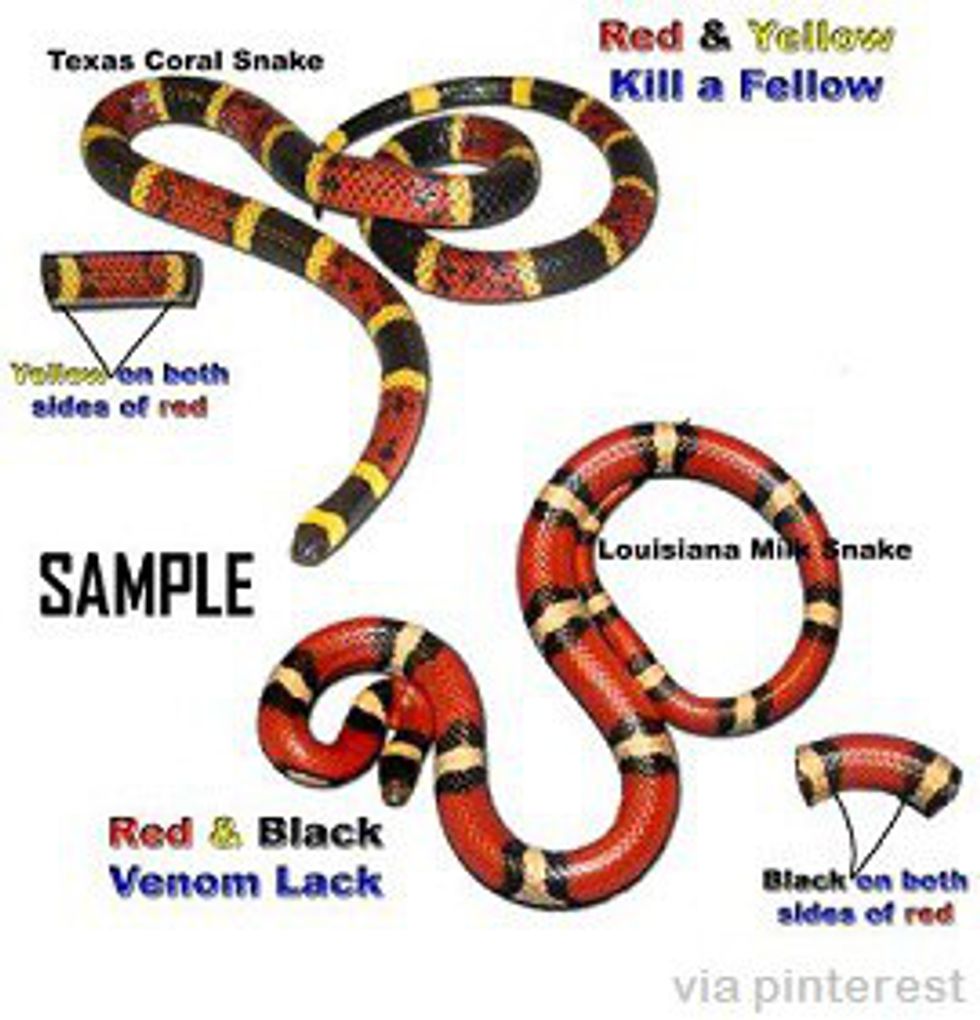(this is a follow-up to last week's article, which you can view here)
6. UK and Great Britain
I did explain this in a previous article, but the information fits here as well. The area you see above in red is the UK. It is a “country of countries”, you might say; it comprises England, Scotland, Wales, and Northern Ireland (which is different from just Ireland, just below it).
The area above, however, is known as Great Britain. It’s the island that the countries of England, Scotland, and Wales sit on. There are a few different meanings when people say the word ‘British’, however. [Source]
7. Silicon and silicone
These two things are sometimes reversed in meaning, as in ‘silicon’ is used to mean ‘silicone’ and vice versa. But these things have quite different meanings from each other. Silicon is a chemical element; element symbol Si, number 14 on the Periodic Table, and used in computer circuits, construction materials, and when chemically mixed with oxygen, creates a chemical known as Silica, which is the type of sand that is used to make glass. Silicone, on the other hand, is something way different; it’s not just one specific material. Rather, it is a class of different synthetic plastic-like materials that are made with mainly silicon. Silicones have many uses, including applications in construction, paint and, most famously, in cosmetics and plastic surgery. In short, silicone is a type of plastic made out of silicon.
8. Affect and effect
Someone in my class had a conversation with our English teacher about this exact topic. I took careful note of it, as I knew that it would come in handy later on, since the difference between these things seems to confuse a lot of people. I expected that his answer would be long and complicated, but it was actually very short and sweet, and it made sense. He said, “Effect is a noun; affect is an adjective”. It was simple, but now I say that to myself all of the time when I want to differ between the two words. You affect something, and the result of you doing that is an effect. It’s easy to understand if you remember this.
9. King snake and coral snake
If you live around the eastern and southeastern United States, you might have to worry about this. There are two different species of snakes, one known as the king snake and the other known as the coral snake. They are particularly remarkable because of their properties compared to each other. They both have a color scheme made up of red, yellow, and white stripes, making them hard to distinguish between. But the thing is that they are on the opposite sides of the snake spectrum. The king snake is mostly harmless and can even be kept as a pet. On the other hand, the coral snake is an extremely venomous snake that can cause slurred speech, paralysis, cardiac arrest, and even death if left untreated. So it is very important that you know the difference between the two. Thankfully, there are several ways to do this. The patterns of these colors on these two types of snakes are not exactly the same. The easiest way to remember is to look at the yellow stripes. If they touch the black stripes, then it’s a king snake, and it’s safe. If they touch the red stripes, then it’s a coral snake, and you should stay away. Just remember the rhyme, “If red touches yellow, you’re a dead fellow.”
10. Baking soda and baking powder
The difference between these two things isn’t a very big one, but it can be very significant when actually put to use. It’s easy, really. Baking soda is the everyday name for the chemical Sodium Bicarbonate. Baking powder is a powder specifically designed for cooking, and is made up of Sodium bicarbonate, cornstarch, and a small amount of some acids. Since baking soda is just the pure chemical, it’s considerably stronger, and can be used in cleaning and hygiene rather than just baking. If you’re a baker, then you know that the difference between these two loose white powders is potentially very tremendous. They are absolutely NOT interchangeable, and using one in place of the other can yield entirely different results. So make sure you use exactly which one your recipe calls for, or your creation might come out an absolute mess!
I hope this article was able to inform you of some of these common misconceptions. If you have any good ones to add, or suggestions for ones for me to touch on in a future article, feel free to mention them in the comments below!
Bonus: Past tense and past participle
This was a specific request made by my brother just a few days ago, that he seemed excited for me to answer. A past tense is a version of a verb that signifies that the action was performed in the past. For example, the past tense form of the word ‘think’ is ‘thought’. Simply put, a past participle is a participle that signifies the action took place in the past, and a participle is a word that can be used as both a verb and an adjective. An example of a participle is the word ‘reading’; in the sentence “the man is reading the book”, it’s a verb, while in the phrase “the reading man”, it’s an adjective. An example of a past participle is “has been” in “he has been acting strange”. [Source] [Source]
























